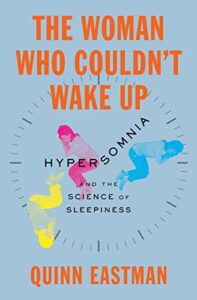 As I write this, I am still trying to recover from an illness that began weeks ago as a simple head cold, eventually developed into severe bronchitis, and is now a lingering profound nuisance. What makes it so bothersome is that it makes me tired – not just mildly tired, but tired to the point that I struggle to do anything for very long, and when I stop to rest, I fall asleep. What once would have been simple catnaps now have me down for hours. I feel as if I simply can’t sleep enough.
As I write this, I am still trying to recover from an illness that began weeks ago as a simple head cold, eventually developed into severe bronchitis, and is now a lingering profound nuisance. What makes it so bothersome is that it makes me tired – not just mildly tired, but tired to the point that I struggle to do anything for very long, and when I stop to rest, I fall asleep. What once would have been simple catnaps now have me down for hours. I feel as if I simply can’t sleep enough.
While I realize that all this is likely just the result of my body still trying to recover from the more than a fortnight of sleep I lost to seemingly endless coughing, it did make me take particular notice of a recent Columbia University Press Off the Page podcast episode in which Quinn Eastman discussed his new book The Woman Who Couldn’t Wake Up; Hypersomnia and the Science of Sleepiness with Melek Firat Altay.
Presenting the case of Anna, a young American lawyer who suddenly found herself sleeping as much as thirty or more hours straight, and even loosing weight due to not being able to remain awake long enough to eat sufficiently, and who was eventually diagnosed with idiopathic hypersomnia, Dr. Eastman delves into the scientific understanding of sleep itself, particularly what causes us to become sleepy and fall asleep. Despite being something that all of us do (there is a rare condition named short sleeper syndrome in which people sleep much less than average, but they still sleep), sleep is still not a well-understood phenomenon.
For those interested in the subject of sleep, neurology, or the history of medicine, this sounds to be a very interesting book indeed, and one to be sought out when it is published this coming August.
If you enjoyed reading this, please consider signing up for The Well-read Naturalist's newsletter. You'll receive a helpful list of recently published reviews, short essays, and notes about books in your e-mail inbox once each fortnight.
